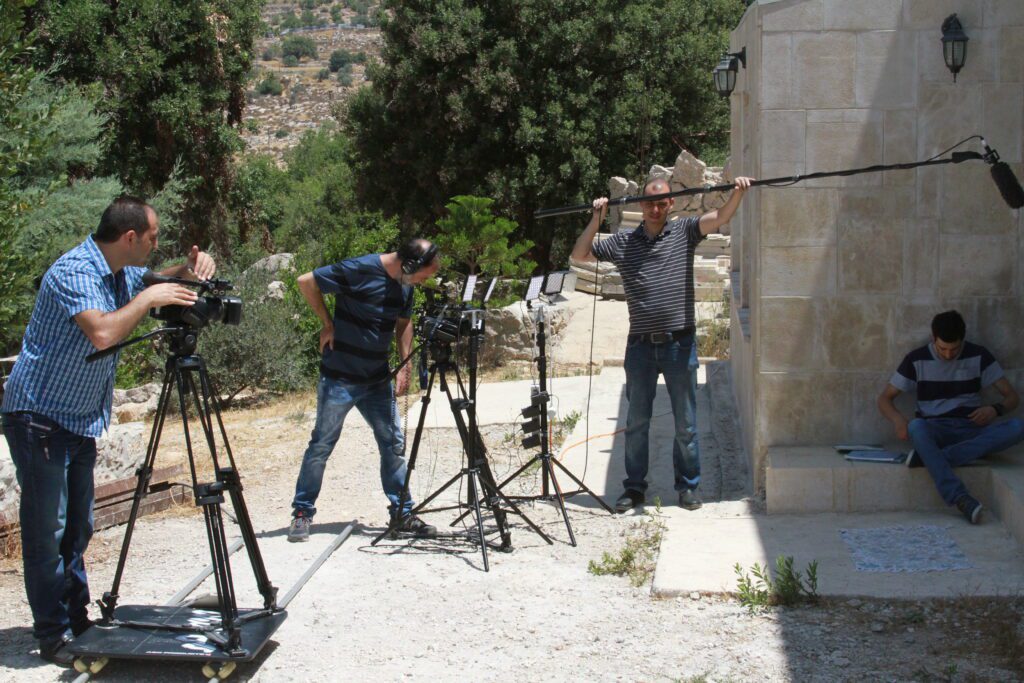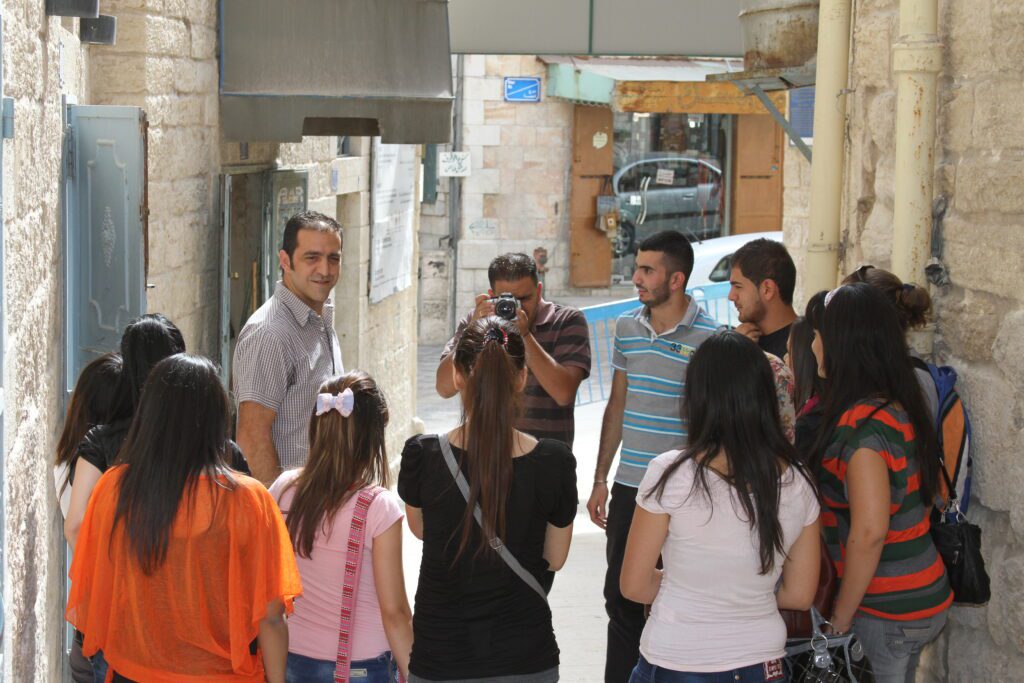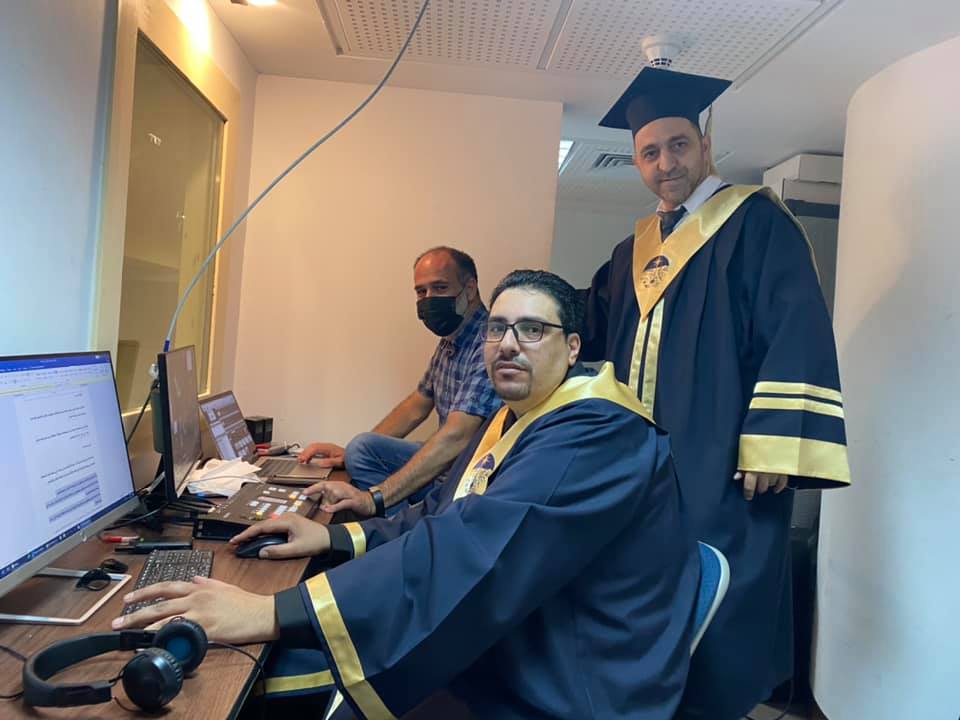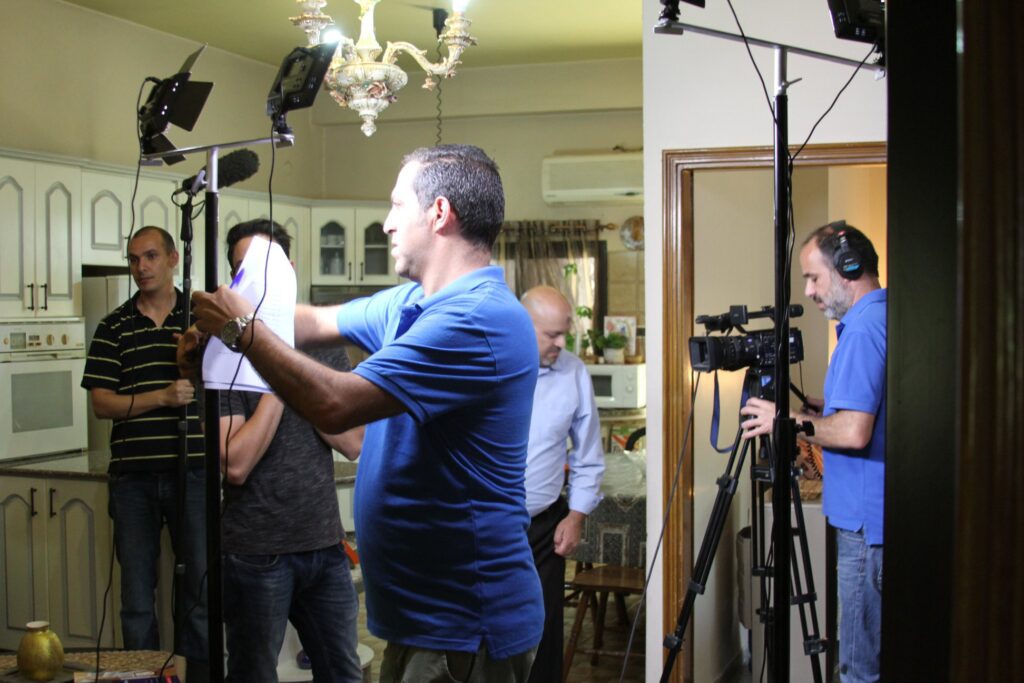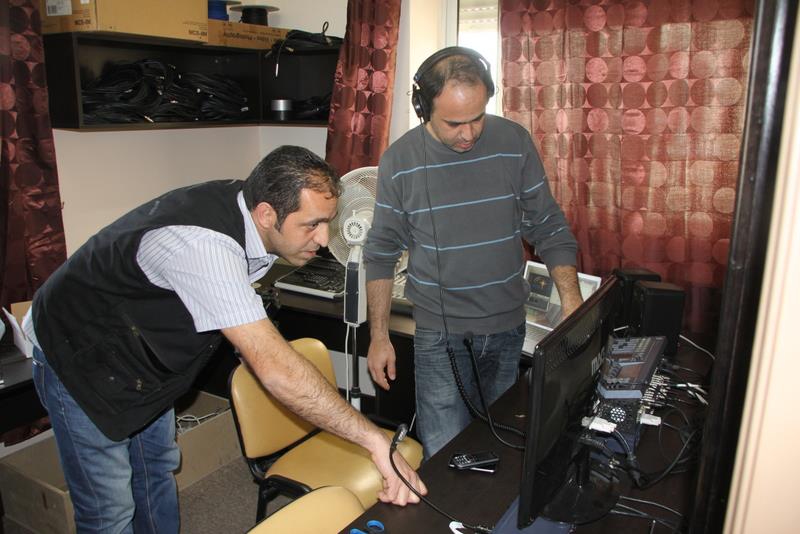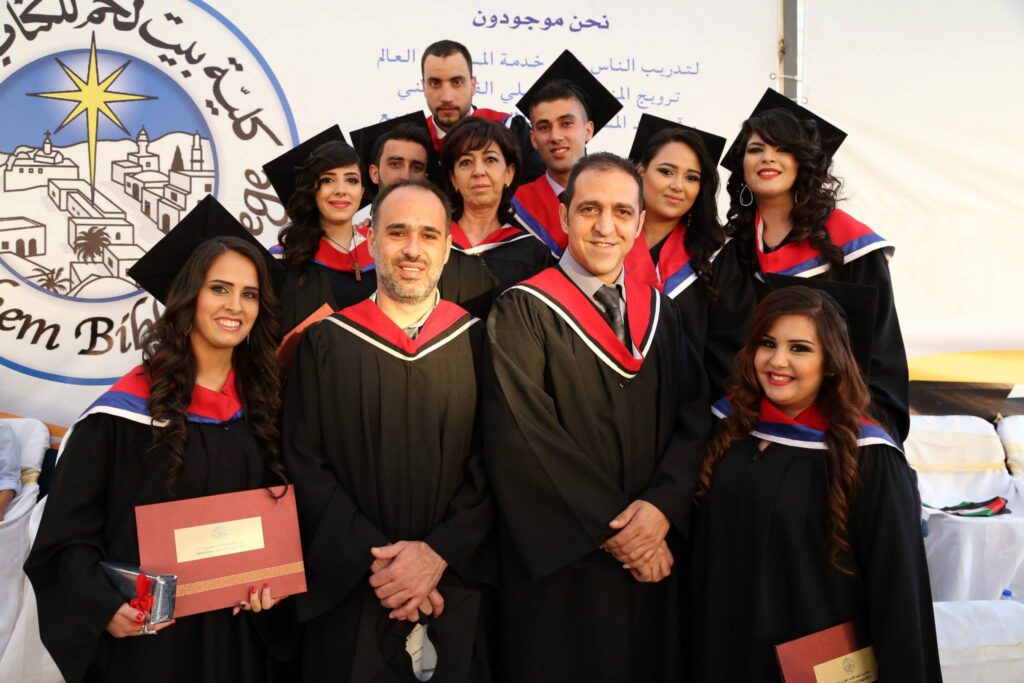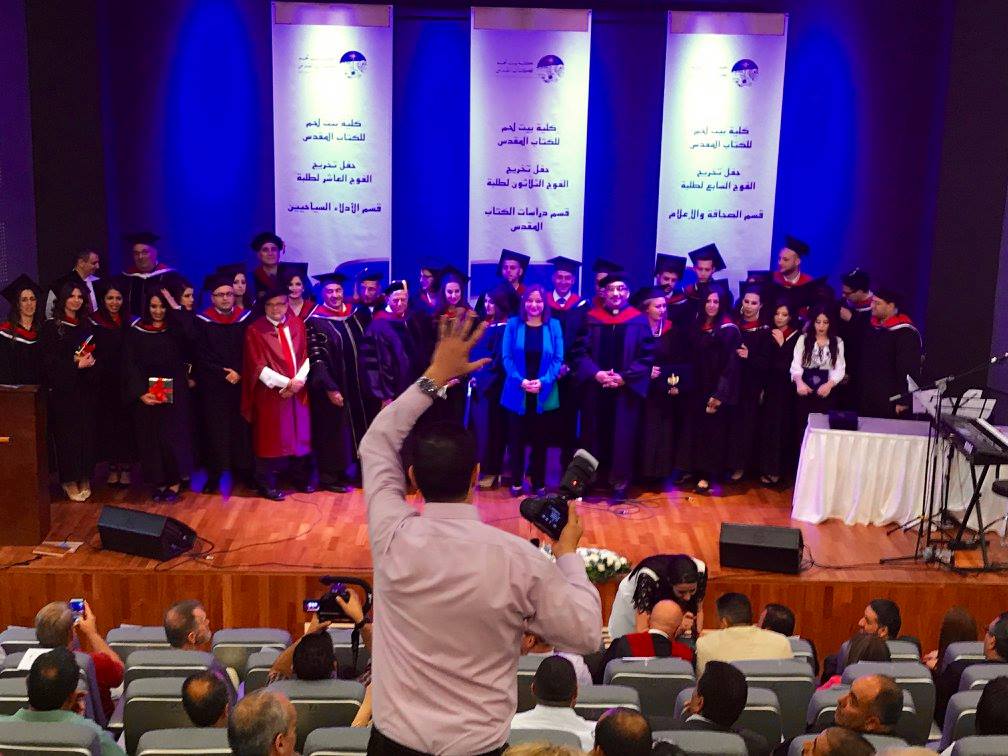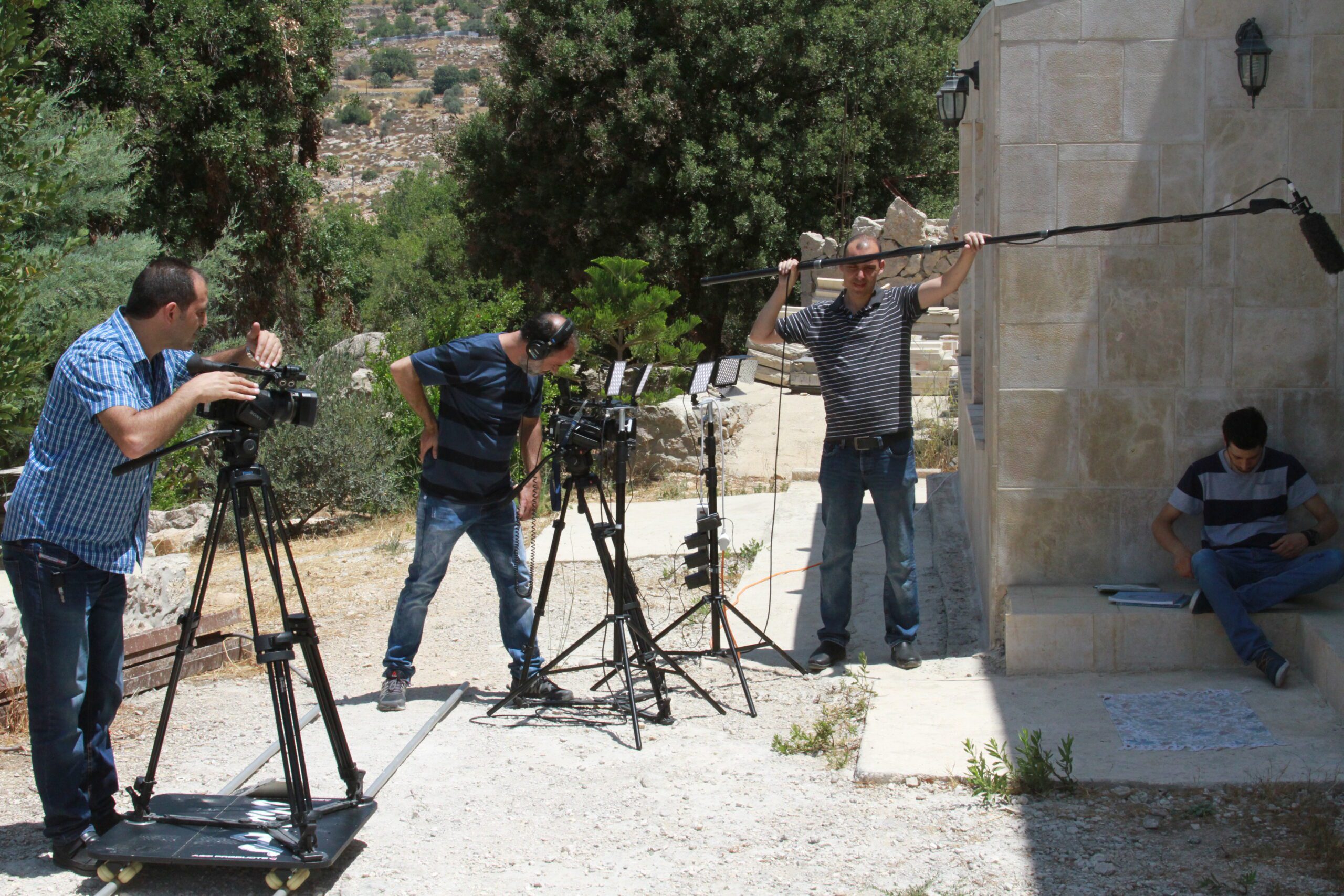
Meet the Creators Behind Our Videos: Alaa and Nidal from the Media Department
Meet the Creators Behind Our Videos: Alaa and Nidal from the Media Department
“Media can’t build schools or hospitals, but it can create awareness and impel
stakeholders to make a change and develop our country.”
Dr. Bishara Awad inspired the creation of the New Vision Media Center (NVMC) in 2002. He saw that a media training program and a production company, within the context of the Bible, could be a way of developing skills and providing employment, all while being a means of using media to promote a better society. The idea was to have a two-year diploma program and to produce a television episode each week that spoke about important issues in the community, such as human rights, democracy, women, and children.
Today I’m visiting with the two main characters behind the camera, Alaa Khoury and Nidal Atrash. They told me their stories about how they joined the college and stayed on board for over 20 years.
Alaa has an exciting story about how he joined the college:
“I was working at Al Jazeera Media Company’s office in Ramallah and I was so happy! Then, one day, I heard that a small college in Bethlehem was opening a media department. Something inside of me pushed me to go and check this college out. I met with Murad Masoud, the person in charge at that time, and he told me about the idea of the project and that it was just starting, but not yet funded and things were still unclear. I made fun of the idea because, besides the prestige of working at Al Jazeera, my job brought in a lot of money – how could I leave a place like that?
“But I returned to the college after a week and met again with Mr. Murad. During that meeting, we didn’t talk about work, we spoke of God and His plans for our lives. I was a lost person at that time. Even though I was married, I lived in a different city than my family and worked 24 hours a day. My life was meaningless – in the morning during the second Intifada, we used to film clashes, dead people and martyrs, and at night to forget the brutal scenes we saw, we used to go drinking. But during that meeting, I believe God spoke to me and pushed me to save myself and my family, and I never regretted it! I never regretted leaving that world and joining the college!”
Nidal Atrash joined the college in 2002, during the second Intifada, as a student in the first cohort of the Mass Media Department. He recalls those times: “I remember the curfew and difficult times and how Dr. Bishara used to collect us from our houses in the college car. They were challenging years, but I graduated in 2005 and immediately became a full-time staff in filming and editing.”
Nidal and a few of the first graduates, alongside Alaa, began to produce weekly TV episodes for the community. Alaa remembers that time: “The same day the first episode was supposed to be out, my wife was giving birth to my daughter “Bisan” I was waiting for two new babies to come to life! It was a great and special feeling. I was sure I’m at the college for a bigger reason than myself.” Nidal adds: “To be part of changing society is an amazing honor. That also means that you create a better future for your family.”
They have many success stories in which they could see the change in society. For example, one of the episodes was about people with special needs. After that episode was published, they got a call from a mother; she had a seven-year-old daughter “Clara” who could not go to school because they couldn’t provide a wheelchair for her and the school in their town was not equipped for disabled people. So NVMC made a particular campaign about her and connected her with many people in charge, resulting in a school being built in Clara’s town equipped for the disabled. Until now it is known as “Clara’s School.”
Alaa adds: “Breast cancer and genetic disease episodes made a big hit. After both episodes were out, we heard from medical labs in the area that the demand for examinations was much higher than before!”
Nidal tells how they are coping with all the new developments: “Now, in line with the development and social media platforms, our episodes have become shorter and more straight to the point. We focus on essential issues in society. For example, we dig deep into the culture’s structure and call for equality in the family. We talk about taboo things that no one dares to talk about on-screen, especially in an eastern community – we speak about heritage, honor killing, and birth control, all from a Christian perspective.”
In a world where access to so much media content is easier than ever, please keep our New Vision Media Center in your prayers, so they remain a voice of truth that inspire changes for a better future.
Amira is the Communications Coordinator of Bethlehem Bible College. She is a committed Palestinian Christian who has a passion for writing about the intersection of faith and seeking justice for her fellow countrymen. To read more of her writings sign up for Bethlehem Bible College’s monthly newsletter.
